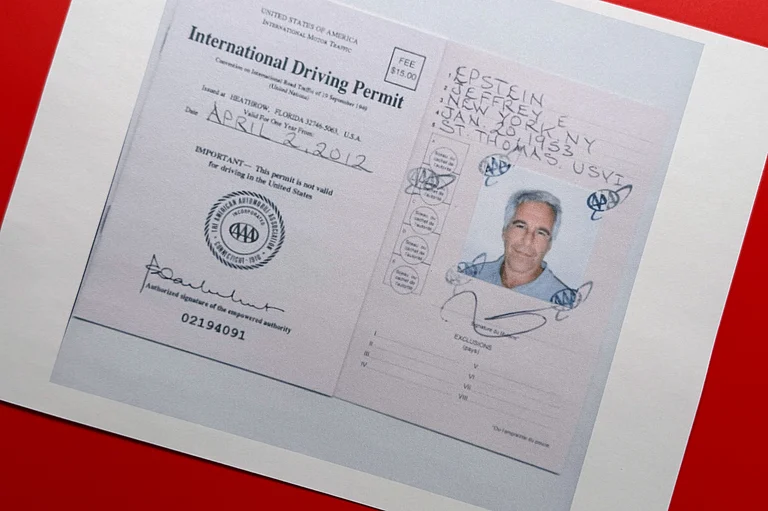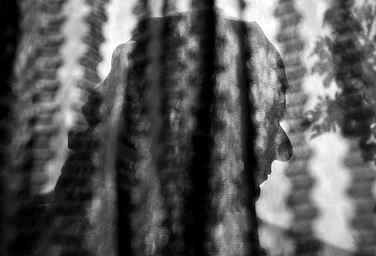At a time when branding population groups as hiv/aids-prone is considered a travesty of human rights the world over, Madhya Pradesh is guilty of labelling two scheduled castes—the Banchharas and Bedias—as practitioners of prostitution and therefore in the high-risk group vis-a-vis hiv. Ironically, it is the Madhya Pradesh Human Rights Commission(MPHRC) which has arrived at this embarrassing conclusion.
The commission’s report, bluntly titled ‘Caste-based prostitution in Madhya Pradesh’, was released a few months back and is now the focus of a major controversy, withhiv/aids and human rights groups vehemently protesting its contents and demanding its immediate withdrawal.
"It’s unbelievable that a human rights commission can be associated with a document titled as such, leave alone be the agency responsible for publishing it," says Purushothaman Mulloli, convenor of jack or Joint Action Council Kannur, a Delhi-based ngo working in thehiv/aids area and leading the protest.
Supporting them is the National Commission for Women whose member Vijay Daksh, supervising its operations in MP, among other states, says: "It is a clear case of violation of human rights of the people of the two castes. It’s sad that it has come from an agency supposed to be championing the cause of human rights of people. We will soon be lodging a written protest with theMPHRC."
The preface of the report—penned by mphrc chairman Justice Gulab Gupta—is a telling example of the capricious way the sensitive issue has been handled. Consider this: "Caste-based prostitution prevalent in some parts of the state of Madhya Pradesh is a socially-sanctioned system wherein a minor girl born in a particular caste is forced by her own parents and relatives into prostitution and enjoys to live with it (sic) throughout her life." "This distinction," he goes on to write, "has put the state on the international map and given it the unique distinction as a violator of human rights of young girl child." The international concern on this matter, he adds, prompted the mphrc to study the problem.
The honourable justice sees a stringent enforcement of laws to curb prostitution as the only way of "rehabilitating the lost prestige of the state in the international community". The overarching concern with the international image more than the issue itself becomes clear once you establish the international connection as far as funding goes. The study was sponsored byUNICEF.
In defence, G.S. Gulati, communication officer, UNICEF, Bhopal, says: "Caste-based prostitution is a well-known practice in MP traditionally followed by the communities named in the report. This is acknowledged by the state itself. The study was commissioned to find the exact causes behind this inhuman practice and to come out with some plan of action to deal with it."
The report dubs Banchharas as criminals engaged in petty thefts from the beginning. "Male Banchharas are even now criminals and engage in several offences, more particularly thefts. With the passage of time, about 25 per cent of them have become agriculturists and a good number of them work as farm labourers. Nowadays, many of them also act as pimps and procure customers for female prostitutes."
About the Banchhara women, the report says that with few exceptions, most of them remain engaged in flesh trade normally up to the age of 35. According to the report, "a Banchhara prostitute prefers concubinage to being a married wife perhaps because married is...harsh while concubinage affords more freedom and prosperity". The life of prostitution, the report would have us believe, results in most of them developing sexually-transmitted diseases including aids and dying "un-honoured and unsung".
The study has not spared the Bedias either from sweeping and unsubstantiated generalisations. The community is believed to be originally a caste of gypsies from Rajasthan and closely related to the Sansias. They are believed to be more widely spread out in Guna, Sagar, Morena, Panna, Shivpuri, Vidisha, Rajgarh and Raisen. The report characterises their women too as prostitutes and suffering from hiv infection.
It is mostly this discrimination against the two castes on the basis of an alleged "high rate of prevalence ofhiv/aidss" that has invited flak. The 90-page report makes blanket statements about the conduct and health status of the two scheduled castes without substantiating it with any scientific proof or evidence. For instance: "In a recent health check of Banchhara prostitutes in Mandsaur and Neemuch districts, about 50 per cent of them were foundHIV-positive."
Says an indignant Mulloli: "This statement not only defies all conventions of human rights and the international guidelines or understanding ofhiv/aids but is a criminal act with clear ulterior motives. Stigmatising and breeding contempt for certain population groups can only ensure that women from these communities will find it impossible to find any other vocation, marry or lead normal lives. The mphrc is thus itself becoming responsible for perpetuating prostitution among them."
Daksh endorses his view saying that by branding certain castes as high-risk groups, the mphrc has blissfully bypassed all existing norms while dealing with the sensitive issue ofhiv/aids. "Agencies like the who and the National Aids Control Organisation (NACO) have established that there is no public health rationale for any measures that limit the rights of an individual, notably measures establishing mandatory screening. The world is understanding more and more the importance of protecting the human rights inhiv/aids issues and here we have a human rights organisation treating it so obtusely," says a senior naco official.
Adds a senior who official: "Even the hiv status of an individual is not to be announced publicly, leave alone branding an entire community with it. This neither serves the interests of public health nor those of the individual."
UNICEF, on the other hand, is playing down the embarrassment. "The facts reported present an overall picture and all population under study has not been tested for the virus," admits Gulati, adding that the agency had funded the project with good intentions of dealing with the social issue.
The intention behind the MPHRC initiative may have been noble but its report has caused more harm than good. Meanwhile, the two communities which have been branded continue to struggle with poverty, illiteracy, social ostracisation and unemployment. Not surprisingly, they themselves are unaware of the violation of their rights. Neither will theyprotest it.


























